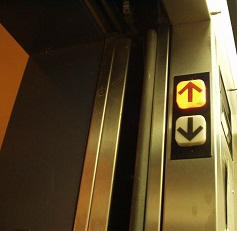 This month the BACC co-bloggers will reflect on the “what” and the “why” of our roles as educators of future school librarians.
This month the BACC co-bloggers will reflect on the “what” and the “why” of our roles as educators of future school librarians.
Any educator at any level can benefit from reflecting on what and why she or he teaches. Last Saturday, I participated in the Association for Library Service to Children (ALSC) Leadership Meeting at the American Library Association (ALA) Midwinter Meeting in Chicago. One of the activities we engaged in during the meeting was writing elevator speeches. Over the years, I have written many of these speeches from the perspective of a practicing school librarian…
But before last weekend and although I have been teaching at the university level for two decades (!), I had not written an elevator speech from the perspective of a school librarian educator. Although it is a work-in-progress, I share it here as a starting point for a discussion of the purpose of library science graduate education.
I, Judi Moreillon, prepare future school librarians to be 21st-century literacy experts and leaders who coteach with classroom teachers to help children and youth from all backgrounds and with various abilities to become critical, creative thinkers and lifelong learners who contribute to and thrive in a global society.
In my role as a school librarian educator, I am grateful for the opportunity to learn alongside enthusiastic graduate students. These educators have chosen to expand their classroom teacher toolkits to add the knowledge and skills of school librarians to their repertoires—including the information-seeking process, reading comprehension strategies, and digital tools for motivating, learning, and creating new knowledge. School librarian candidates learn to design instruction and teach these skills and strategies as coteachers along with classroom teachers and specialists.
Over the course of their graduate program, these librarian candidates learn to embrace a global view of the school learning community and have the opportunity to consider their potential to serve as leaders in their schools. Using professional standards and guidelines I aspire to enculturate school librarians into a profession or community of practice (Wenger 1998). To that end, I also model professional practice to show candidates how to serve.
Works Cited
d3designs. “pb210160.jpg.” Digital Image. Morguefile. Web. 01 Feb. 2015. <http://mrg.bz/iqhhRc>.
Wenger, Etienne. Communities of Practice: Learning, Meaning, and Identity. Cambridge, UK: Cambridge University Press, 1998. Print.
